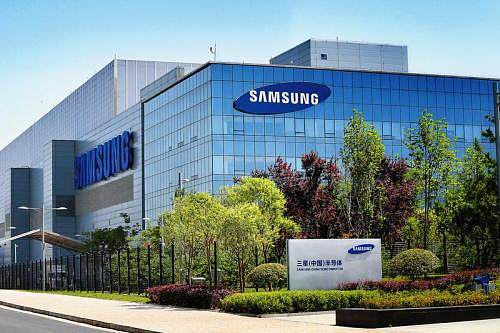
On October 9th local time, according to a report from the Office of the President of South Korea, the United States agreed to Samsung Electronics and SK Hynix providing equipment to their factories in China without the need for other permits. At present, these two technology giants in South Korea have obtained an exemption from export restrictions from the US government, allowing them to supply US chip equipment to factories in China indefinitely without obtaining separate approval. This is heavyweight news for the global semiconductor industry.
In recent years, strict controls on chip exports from the United States to China have been the main focus of the Sino US trade war. The United States is willing to sacrifice its own interests to restrict the development of China's semiconductor industry, with the intention of suppressing the rise of China's semiconductor technology. Behind this major exemption decision, it should be the US government's deep consideration of the sustainable development of the global semiconductor supply chain. Because of the important position of Samsung and SK Hynix in global semiconductor production, any restrictions on their factories in China may have an impact on the global supply chain and have a negative impact on the US industry.
On the one hand, this is a huge concession made by the United States to Korean semiconductor companies in order to ease relations with South Korea. South Korea is an important ally of the United States in Asia and an important link in the global semiconductor supply chain. If the United States imposes excessive restrictions on South Korean semiconductor companies' exports to China, it will not only harm South Korea's economic interests, but also affect the United States' own chip demand and industrial development.
On the other hand, this is a temporary compromise that the United States has to make in order to further curb China's semiconductor industry. Under the blockade and suppression of the United States, China is accelerating the development of independently controllable chip technology and reducing its dependence on external supply chains. Huawei's latest Mate60 phone is a significant breakthrough achieved under the suppression of the United States. If the United States completely cuts off China's connection with external supply chains, it will actually stimulate China to increase investment,Accelerate breakthroughs. Therefore, the relaxation of some controls on South Korean semiconductor companies' exports to China by the United States can to some extent reduce the motivation for China's independent innovation.
In an interview with the Financial Times, South Korean congressman and semiconductor expert Leung Xiangzi said, "The United States should abandon its current approach of trying to gain benefits by shaking and breaking the global value chain." Leung not only criticized the Biden administration's chip strategy, but also said that curbing China's acquisition or production of advanced chip capabilities could potentially undermine the relationship between the United States and its Asian allies.
In fact, this is a warning from allies represented by South Korea and deeply influenced by the United States: the more the United States "sanctions" China, the more China will strive to achieve rapid technological progress and provide more national support for this. The exemption policy of the United States is also an important warning, reminding governments and businesses around the world that maintaining the stability of the global semiconductor supply chain requires joint efforts from all parties, and any action by either party may have a profound impact on the global market.
At the same time, the seemingly arbitrary and actually unavoidable exemption of the United States may also provoke dissatisfaction from other US allies. The main purpose of the US government's policy on semiconductor export controls to China is to prevent the outflow of key technologies, especially by imposing technology blockades and sanctions on China. But the exemption policy for South Korean Samsung and SK Hynix factories in China this time will raise concerns from other countries, believing that the US government is acting out of its ownA selfish behavior that considers personal interests and has serious bias towards some countries when implementing policies, which will have a negative impact on the stability of the global semiconductor supply chain.
From the compromise made by the United States to the Korean semiconductor industry this time, it can be seen that in this highly interconnected world, any issue in any aspect can have an impact on the entire system. Therefore, from a global perspective, countries around the world need closer international cooperation to address the constantly changing challenges of the global semiconductor market and technology. The sanctions and blockade policies adopted by the United States due to its narrow interests will eventually be widely criticized and abandoned because they do not conform to the global trend of technological development.

On October 16, 2025, two "no-confidence motions" against French Prime Minister Lecornu in the National Assembly ended in failure.
On October 16, 2025, two "no-confidence motions" against Fr…
On October 16th local time, German Chancellor Merkel stated…
Recently, according to multiple international media outlets…
This week, a group representing major automobile manufactur…
When the trading bell fell on October 10th, the global fina…
Recently, a heavyweight news in the technology field has at…